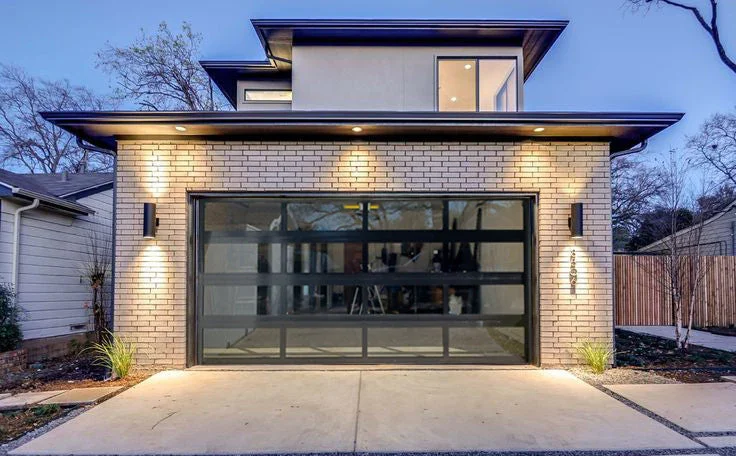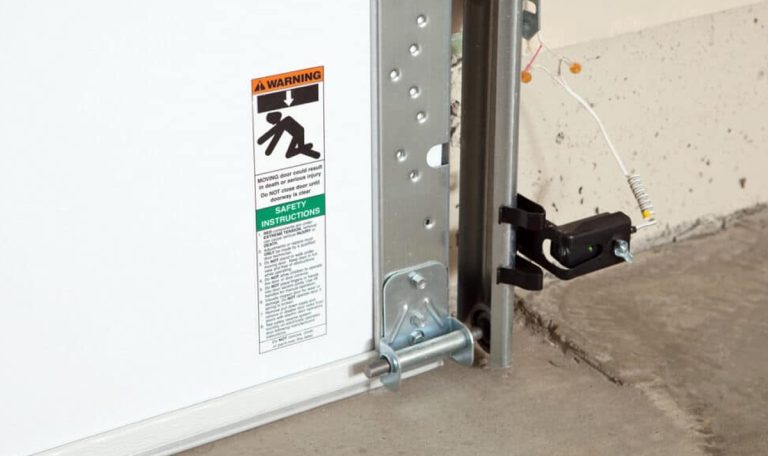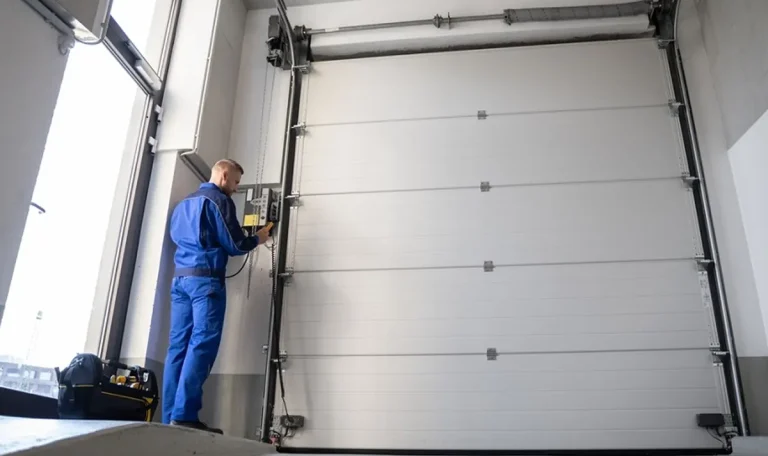So you’re looking at an 8 ft garage door for your home. Let me tell you what I’ve learned after years of helping homeowners pick the right size. These compact options work great for smaller spaces or single-car setups. The 8 ft garage door actually offers more flexibility than you might think. Whether you need something for a shed, workshop, or actual vehicle storage, this size hits that sweet spot between functionality and space-saving design. Understanding 8 ft x 8 ft Garage Door Size When we talk about an 8 ft garage door, we’re discussing a pretty specific solution. These dimensions work perfectly for golf cart storage, ATVs, or smaller vehicles. I’ve installed dozens of these over the years, and homeowners love them for utility buildings too. The actual opening needs about 8.5 feet of width to accommodate the frame properly. Height clearance stays similar, with most installations needing just a few extra inches. What surprises people is how this size maximizes usable space while keeping costs reasonable. Think of it like finding the perfect fit for your favorite jacket. Too big wastes money and space. Too small doesn’t serve its purpose. The 8 ft garage door sits right in that comfort zone for specific needs. Available Model Range and Features You’ve got plenty of choices with this size. Steel models start around $500 and go up from there. Aluminum options weigh less, making them easier on your opener system. Wood brings that classic look but needs more maintenance. Most manufacturers offer windows, decorative hardware, and color options too. I always tell clients to consider their home’s style first. A modern home might look great with aluminum and glass panels. Traditional homes often suit raised panel designs better Available Model Range and Features Standard single-car doors measure 8 to 9 feet wide. Double-car versions span 15 to 16 feet. Anything outside these dimensions costs more. Custom sizes can add 20-30% to your total. Style choices range from traditional raised-panel to modern glass-and-aluminum designs. Carriage-house styles are trending but cost more. Windows, decorative hardware, and special finishes all increase garage door prices. Smart features like Wi-Fi connectivity add convenience but also expense. Installation Service and R-Value Considerations Here’s where things get interesting with your 8 ft garage door project. Professional installation typically runs between $200-400, depending on your area. The R-value, which measures insulation effectiveness, becomes crucial if you’re heating or cooling that space. Non-insulated models work fine for basic storage. But if you’re using it as a workshop, you’ll want at least R-6 insulation. Some homeowners go up to R-16 for maximum efficiency. The price difference isn’t huge, maybe $200-300 more. Installation takes about 2-4 hours for experienced pros. They’ll check your: Opening measurements and framing Spring tension requirements Track alignment specifications Weather seal placement Safety sensor positioning High Performance Product Collection Premium 8 ft garage door options really shine when you need extra durability. Wind-rated models handle coastal conditions beautifully. Some manufacturers offer lifetime warranties on their high-end steel products. Smart technology integration has changed the game recently. WiFi-enabled openers let you control everything from your phone. Battery backup systems keep things running during power outages. These features add maybe 20-30% to your total cost but deliver serious convenience. Getting Your Savings Quote Getting accurate pricing for your 8 ft garage door starts with measuring correctly. Take width and height measurements at three different points. Use the smallest measurement to avoid ordering something too big. Most suppliers offer free quotes within 24 hours. Online configurators help you see different styles and calculate costs instantly. Don’t forget to factor in removal of your old unit if needed, usually $50-100. Local dealers often beat big box store prices, especially during slow seasons. Spring and fall typically bring the best deals. Ask about contractor discounts if you’re working with a builder. Many places offer 10-15% off for multiple units too. Your perfect 8 ft garage door solution depends on your specific needs and budget. Take time to compare options and don’t rush the decision. Our Experts Are Here To Help Get a Free Quote Common Questions After Reading Can I install an 8 ft garage door myself to save money? While DIY installation is possible, I wouldn’t recommend it. Springs carry serious tension and can cause injury if mishandled. You’ll need specialized tools like winding bars and a level. Professional installation costs $200-400 but includes warranty coverage and proper safety setup. Most homeowners find the peace of mind worth the extra cost versus potential medical bills. How long will my 8 ft garage door typically last? With proper maintenance, expect 15-30 years depending on material choice. Steel models with good paint finish last longest. Aluminum resists rust but dents easier. Wood needs repainting every 3-5 years but can last decades. Springs typically need replacement every 7-10 years. Regular lubrication and tightening hardware every six months adds years to any model’s lifespan. What’s the actual total cost I should budget for? Budget between $800-2000 total for everything. Basic steel runs $500-700, installation adds $200-400, and an opener costs $200-500. Insulated models add $200-300. Windows or decorative hardware might add another $100-200. Don’t forget removal of old equipment at $50-100. Spring for the insulation if you’re using the space regularly, it pays for itself quickly. While DIY installation is possible, I wouldn’t recommend it. Springs carry serious tension and can cause injury if mishandled. You’ll need specialized tools like winding bars and a level. Professional installation costs $200-400 but includes warranty coverage and proper safety setup. Most homeowners find the peace of mind worth the extra cost versus potential medical bills. With proper maintenance, expect 15-30 years depending on material choice. Steel models with good paint finish last longest. Aluminum resists rust but dents easier. Wood needs repainting every 3-5 years but can last decades. Springs typically need replacement every 7-10 years. Regular lubrication and tightening hardware every six months adds years to any model’s lifespan. Budget between $800-2000 total for everything. Basic..





